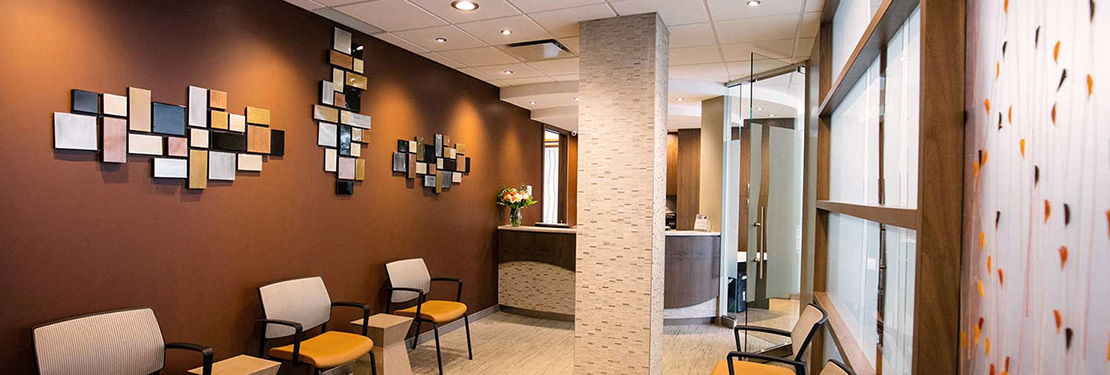When you have a severely damaged or infected tooth, your dentist may recommend a root canal. This is a procedure designed to remove the damaged tissue before it spreads to cause further problems throughout the body. However, it’s important to be aware of what to expect from your root canal treatment so that you can follow your dentist’s recommendations to prevent future infection in the area.
After your root canal procedure, you’ll have a short recovery period—usually nothing more than a few hours. You can take over the counter pain medication if you’re experiencing any discomfort or sensitivity. Your dentist may give you a prescription for antibiotics; make sure to follow the full course of the prescription to prevent future infection.
What Is a Root Canal?
A root canal is a dental procedure designed to fix infection or inflammation within the roots of a tooth. This root, called the pulp, is the innermost part of the tooth, and contains:
- Blood vessels
- Connective tissue
- Nerves
When you experience severe tooth decay—due to a cavity or trauma—this sensitive tissue becomes exposed to bacteria, which can lead to significant long-term damage. This area of the tooth is extremely sensitive, and the infection or inflammation can cause severe pain, discomfort, or even loss of the tooth.
A root canal aims to save the rest of the tooth by removing the infected pulp, cleaning the inside of the tooth, and then sealing it to prevent future problems. Without a root canal, the bacteria can spread and lead to more serious problems down the line.
When Is a Root Canal Necessary?
A root canal may be necessary due to:
- Persistent tooth pain, especially when chewing or applying pressure
- Extreme sensitivity to stimuli
- Significant discolouration within the tooth
- Swelling in the area
- Cavities
- Dental trauma that causes the tooth to crack or chip
- Prolonged gum sensitivity or tenderness around the affected tooth
Before recommending a root canal, your dentist will need to examine the area to determine the extent of the damage. They may also perform an X-ray to pinpoint the exact location of the infection or inflammation.
What Happens During a Root Canal?
There are 3 key steps to a root canal procedure: the before, during, and after.
Before the Procedure
Before the procedure starts, your dentist will take x-rays to assess the extent of the infection and plan the treatment. If you have any questions, now is the time to ask; your dentist will make sure you’re feeling relaxed and anxiety-free about the procedure before beginning. Then, they’ll give you a local anesthetic to numb the area and make you comfortable during the procedure.
During the Procedure
During the root canal procedure, there are a few key steps:
- The dentist creates an opening in the crown of the tooth to reach the pulp chamber and root canals. This gives them the access needed to perform the full procedure.
- Using specialized instruments, the infected or inflamed pulp is carefully removed. This prevents further damage to the teeth by removing any bacteria causing your symptoms.
- The inside of the tooth is carefully cleaned and shaped to prepare for filling.
- The cleaned canals are filled with a biocompatible material designed to supplement your natural tooth structure and prevent future problems.
- The opening is then sealed with a temporary or permanent filling.
Depending on the extent of the damage, your dentist may recommend a crown or other restoration to protect and strengthen the treated tooth, but this will likely be done at a later time.
After the Procedure
After the root canal, you may experience some mild discomfort, sensitivity, or aching sensations for a few days. This is entirely normal; your body needs some time to recover from the infection. Your dentist may recommend over-the-counter painkillers to help you find relief, and they may prescribe you antibiotics to prevent further infection.
Tips for Recovering from a Root Canal
After your root canal, make sure you’re following your dentist’s recommendations for post-procedure recovery. This gives you the best chance of avoiding future infections or other problems. Proper care is essential here.
Make sure to:
- Maintain your oral hygiene. Keep your mouth clean by brushing and flossing regularly..
- Avoid hard and crunchy foods. Stick to soft foods and avoid chewing on the side of the treated tooth to prevent irritation or damage.
- Stay hydrated. Drink plenty of water to help flush out toxins and aid the healing process.
- Avoid tobacco. Smoking or chewing tobacco can cause severe inflammation and negatively affect the healing process.
Taking Care of Your Dental Health
A root canal may sound intimidating, but with proper care, you can enjoy a smooth and swift recovery. And if you have any questions about your dental health, reach out to our team here at Ti Dental! Our team is here to provide you with quality care, and we’ll support you every step of the way. Request your appointment with us today!








